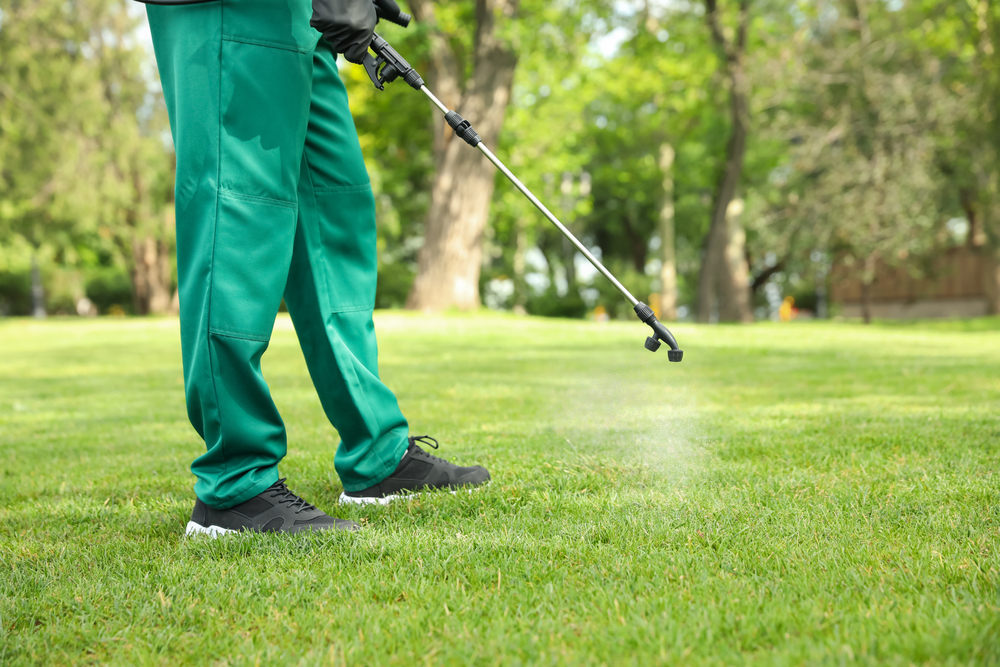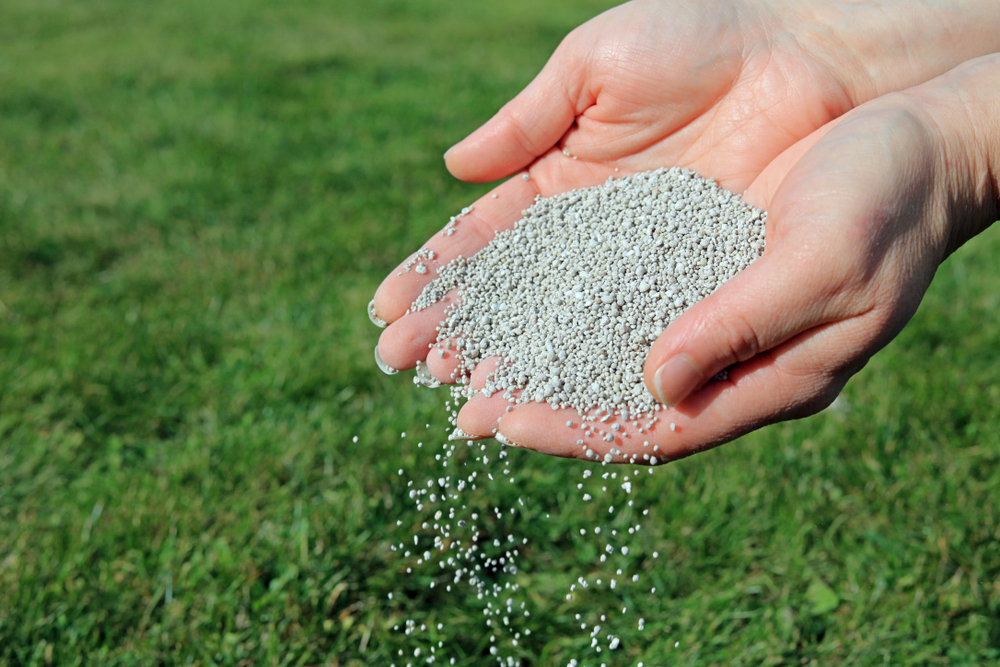As any Progreen clients or regular readers of this blog know, we at Progreen are big proponents of irrigation. So, if you have got your watering taken care of, half the battle of caring for your Pflugerville lawn and other plants is won! But what about the other half? Well, there's the sunlight, of course, but we'll assume that your plants were planted properly (probably by us) and are getting enough of that for today's purposes. Fertilizer provides the rest. Just as man can't live on bread alone, plants need additional nutrients too. Today, we'll discuss the importance of fertilizing and how we do it.
Photosynthesis
We often talk about fertilizing as if we were feeding our plants. But that's not strictly true. Technically, plants make their own food through photosynthesis. As we all learned in Biology, plants use sunlight to build the food they need to grow.Other Ingredients
But if photosynthesis is the cooking process, and sunlight is the main ingredient, nutrients are other vital dinner elements. Plants get chemicals like nitrogen and minerals from the soil. So fertilizing is the process of adding these to the ground.Why Don't They Get Enough Nutrients?
 Obviously, out in the woods, jungles, and prairies, no one is adding fertilizer to the soil, but those plants still grow strong. Why is that?
As we build our homes, we do our best to make them hospitable for us. But as we do that aesthetically in our yards, it eliminates much of the natural replenishment of nutrients.
We keep animals away from our yards so they don't add anything to our ground. We also remove any plants that don't add to the aesthetic we created. But that lack of diversity means we have a less healthy ecosystem that doesn't rebuild itself.
So to compensate for our intervention, we have to intervene differently.
Obviously, out in the woods, jungles, and prairies, no one is adding fertilizer to the soil, but those plants still grow strong. Why is that?
As we build our homes, we do our best to make them hospitable for us. But as we do that aesthetically in our yards, it eliminates much of the natural replenishment of nutrients.
We keep animals away from our yards so they don't add anything to our ground. We also remove any plants that don't add to the aesthetic we created. But that lack of diversity means we have a less healthy ecosystem that doesn't rebuild itself.
So to compensate for our intervention, we have to intervene differently.
Solving the Problem
The way we fix depleted soil is to add nutrients back into it. There are two basic ways to do that, which you choose will depend on your plants and your patience.Crop Rotation
Traditionally the human solution for the human problem of agriculture was to rotate crops. For example, after planting a veggie that took nitrogen from the soil but added another nutrient, you would harvest it and plant a new crop that needed that nutrient but added nitrogen. It created a healthy way to keep your crops growing. But crop rotation is rarely practical in home landscapes. It works well in organic gardening, and you may even be able to use it in your flower gardens, but it's impossible if your goal is to maintain a lawn.Fertilizing!
So now we get to the point - fertilizing your soil, the practical solution for depleted soil in modern landscaping. When you know what nutrients your plants are using, you can add those nutrients back into them. However, if you don't know about the makeup of your soil, we can test it to see what it needs.Types of Fertilizer
There are wide varieties of fertilizers you can use for your home landscape. However, what works best for your lawn may differ from what works best for your garden. While there may be hundreds on the market, some of the most fundamental divisions are organic vs. inorganic and solid, liquid, or granular.Organic Vs Inorganic
Organic fertilization comes from natural materials like various manures, bone meals, and compost. In a way, you could even look at mulch as an organic way to fertilize though you'd not use it for that sole purpose. Unless they're liquid, organic fertilizers will typically need to be put directly into the soil, which makes them less practical for a plant you want to remain intact, like a lawn. We're more likely to use an inorganic variety made from synthesized nitrogen sources or other nutrients for these.State of Fertilizer
 As discussed, most organic solid amendments come in a solid form. However, you can also find some liquids that can work when you don't want to break up the ground. You can spray these directly onto your lawn.
We also often use pellets to fertilize as they break down easily and feed the soil and your plants.
As discussed, most organic solid amendments come in a solid form. However, you can also find some liquids that can work when you don't want to break up the ground. You can spray these directly onto your lawn.
We also often use pellets to fertilize as they break down easily and feed the soil and your plants.
